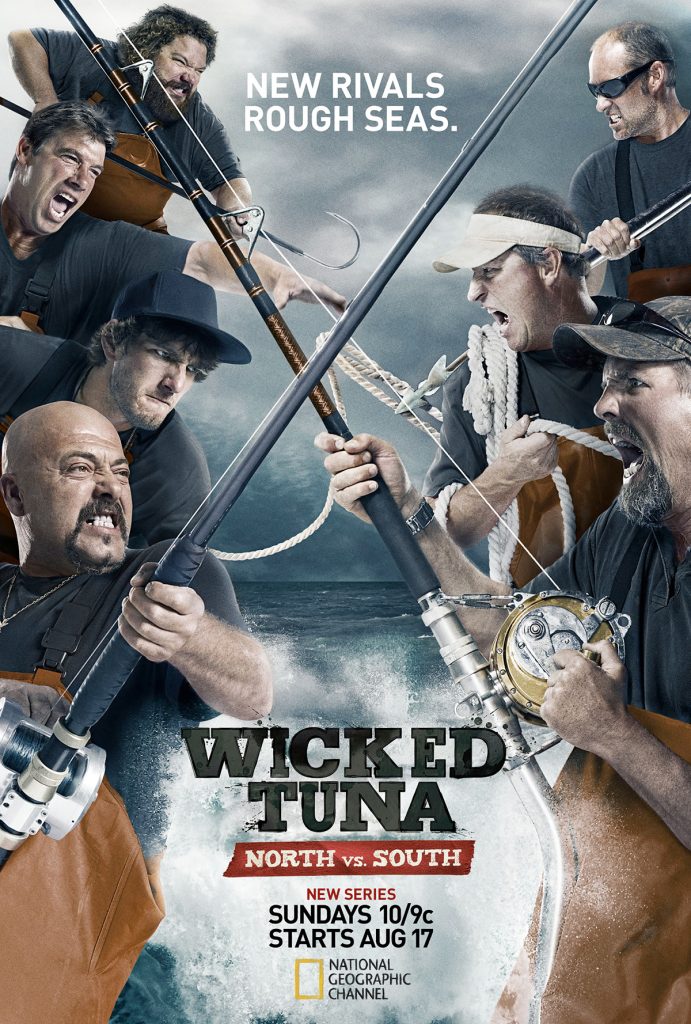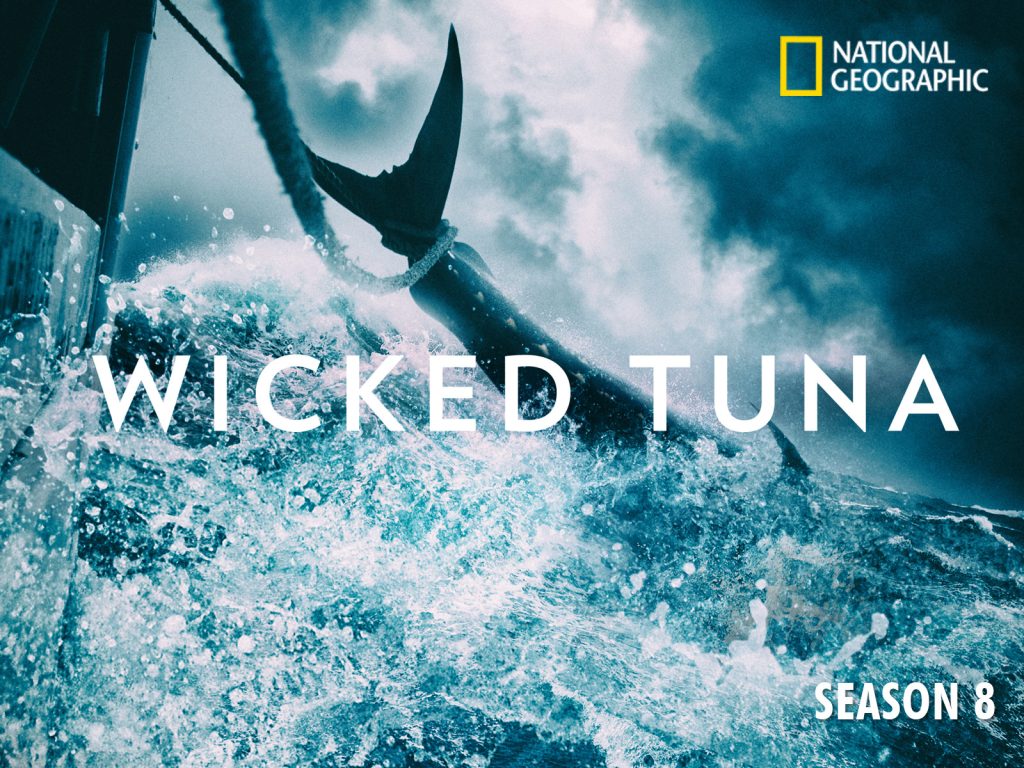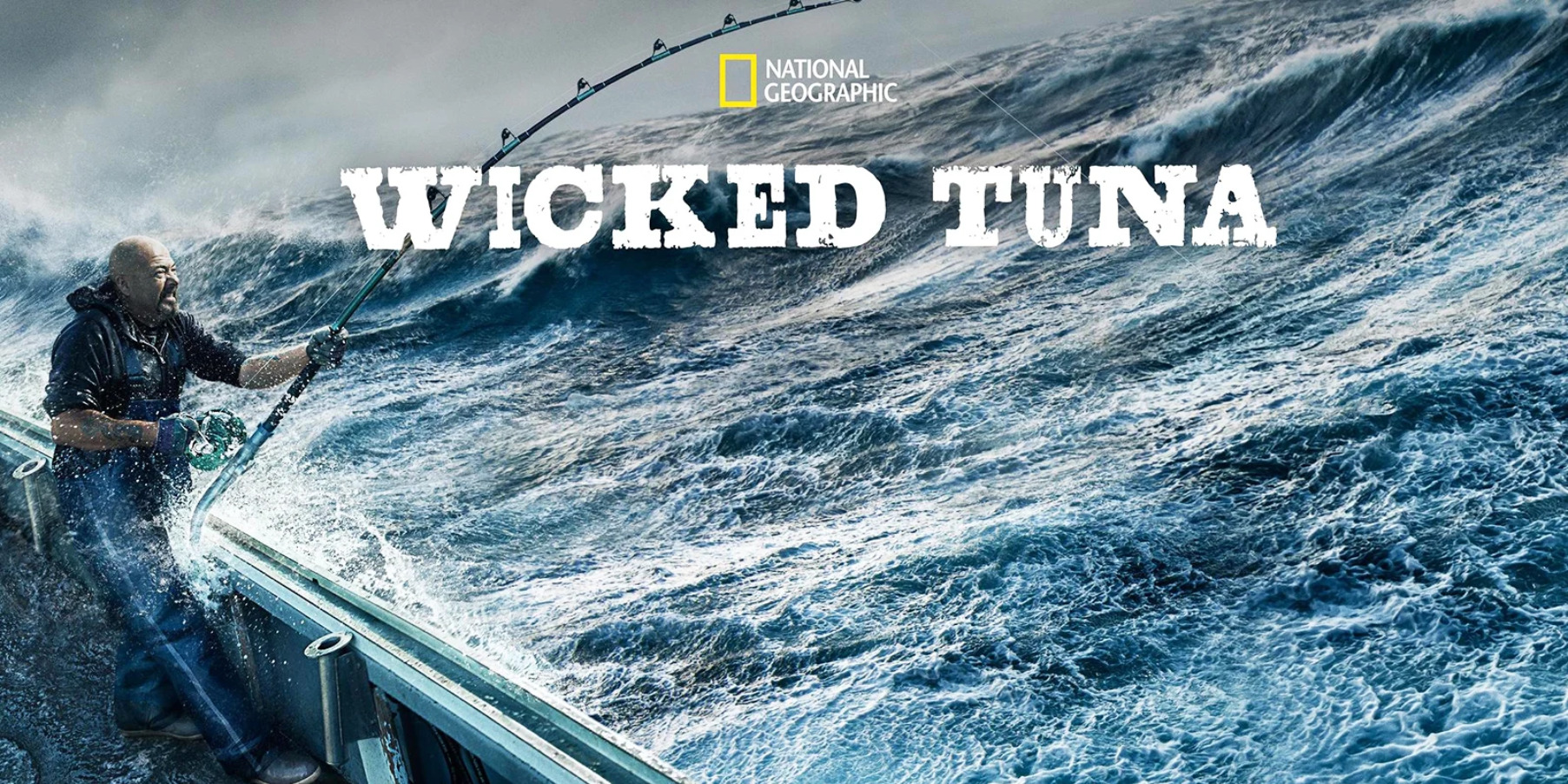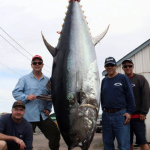What is Wicked Tuna?
By following the struggles of commercial tuna fishermen in Gloucester, Massachusetts, “Wicked Tuna” has become a popular reality show, which has been available on the National Geographic Channel since April 2012. Every week, dozens of dedicated fishermen battle it out to see who can make the most money by catching the lucrative Atlantic bluefin tuna.
Apart from allowing viewers a sneak peek into the industry, “Wicked Tuna” also educates the public about the fish, inmcluding the captains of the show adhering to strict quotas and size limits.
Show’s Beginnings
The show’s first season saw Dave Carraro and Dave Marciano hunt for bluefin tuna in the North Atlantic Ocean, aboard their respective vessels, the FV-Tuna.com and Hard Merchandise. The fan favorites have been on the show since the very beginning, with Marciano taking a short break in the eighth and ninth seasons.
https://www.instagram.com/p/BmeD7DfHTkc/
Bill Monte, Kevin Leonowert, and Ralph Wilkins made up the other three members of the original cast.
The show became a big hit almost immediately, thanks to its unique concept and the fascinating banter between each crew of fishermen. The second episode of the first season saw Marciano reel in a whopping $10,000 fish, with the simmering rivalry between the crews of Tuna.com and Bounty Hunter keeping fans entertained.
Other topics explored were Monte’s struggles with alcohol, the mounting debts that some captains struggled to pay off, and the dangerous odysseys undertaken by Marciano and his crew in an effort to maintain his winning streak. Viewers were enthralled by the gritty, real-life portrayal of the fishing industry, including fights between captains and mates, and the harsh reality of a scarce fish.
The season one finale saw Carraro win with a total of $85,950, closely followed up by Marciano who made a $61,000 profit. “Wicked Tuna” was renewed for a second season, and the addition of Paul Hebert and Tyler McLaughlin saw the cast grow.
Show Highlights
It’s a close call, but fans consider the seventh season of “Wicked Tuna” the most entertaining. Over the years, the reality show’s faithful followers have witnessed heated arguments, brutal competition, and near-breakdowns, with every crew fighting to reel in the coveted bluefin tuna.
Season seven saw Marciano go through a rough patch, and reach his breaking point after forming a tense alliance with Carraro, which was jeopardized following the Hard Merchandise’s breakdown at sea, as well as Hebert’s explosive fight with his first mate Rick. In the end, McLaughlin and Brad Krasowski were crowned winners in an extremely close race, with totals of $103,936 and $103,361.
Other popular episodes include “The Enemy Among Us” (season nine, episode one), as a fleet of outsiders arrived on the first day of the bluefin season, and “Coming for the Crown” (season eight, episode 13), with the Gloucester captains fighting to knock Carraro out of the number-one spot.
Every bluefin is as good as gold.
The new season of #WickedTuna starts Feb 27 at 9/8c on National Geographic pic.twitter.com/Ostwe0IfhV— Wicked Tuna (@WickedTuna) January 30, 2022
Viewing figures have remained steady over the years, and experts in analytics have found that “Wicked Tuna” is three times more in demand than the average show in the US. Ranking in the 91.3th percentile in the reality genre, it’s little surprise that the show spawned the spin-off “Wicked Tuna: North vs. South”, set in North Carolina and after season one renamed “Wicked Tuna: Outer Banks”. Typically, “Wicked Tuna” wraps up in June each year and is followed a few weeks later by the season premiere of “Outer Banks”, thus keeping viewers’ interest piqued from March to October.
To date, Hebert holds the record for the biggest pay-out on the show, explaining: “I had brought in one of the only tuna on the market at that time. To this day, I still have the text from the buyer saved on my phone”. Despite not divulging how much the specimen weighed, Hebert shared that he was paid by the pound at a steep rate of $47.02.
https://www.facebook.com/WickedTunaTV/photos/3799359570093540
We can imagine that Hebert was rewarded handsomely for his catch, as the rare species can grow up to the size of a small car – in Nova Scotia, Ken Fraser reeled in a staggering 1,496lb bluefin tuna, which makes even Krasowski’s impressive 920lb catch seem small by comparison.
Controversy
As the bluefin tuna is currently deemed a critically endangered species by the World Wildlife Foundation, the show’s producers and cast members have often been criticized by detractors and animal rights groups. Reportedly, the bluefin’s dwindling numbers have been caused by excessive and under-regulated fishing in other parts of the world, but that doesn’t stop conservation and nature groups from slamming locally based fishermen as well.
Apparently, the “Wicked Tuna” guys also greatly exaggerate how much money bluefin tuna fishing really brings in.
Insider industry sources claim that far from being worth the “unrealistic” figure of $25 a pound, the fish typically attract a far lower price of $6.
Although the show’s captains have mostly managed to stay scandal-free, Hebert was fined for Social Security and Medicaid fraud by the government a few years back, having claimed to be unable to work due to a disability. Although avoiding jail time, Hebert had to pay a hefty sum of money; luckily for him, the incident has been largely forgotten.
Surprisingly, some netizens were also disappointed upon discovering that “Wicked Tuna” has a scripted element to it, as hawk-eyed viewers pointed out that Captain TJ Ott – a regular since season three – was holding two different reels in his hand from one scene to the next. Nevertheless, a mix of clever editing and angled shots smoothed the presentation.
The deaths of two “Wicked Tuna” cast members, despite not being controversial per se, also generated plenty of online furor on both occasions, as fans mourned their untimely passing.

In 2015, Adam Moser passed away after a lengthy battle with drugs at just 27 years old, followed by Nicolas Fudge’s death from undisclosed causes in 2017. Somewhat chillingly, both cast members were part of the PinWheel crew.
But it’s not all bad: since the premiere of “Wicked Tuna”, Gloucester has seen an enormous boom in the tourism and fishing sectors. Nowadays, the self-described oldest seaport in America – which has been a fishing community since the 17th century – is a hotspot for amateur fishermen, and fans who discovered the city thanks to the show.
The Truth about the Industry
As mentioned before, “Wicked Tuna” has been accused of glamorizing the bluefin tuna fishing industry by puffing up the payouts received by each fisherman. Be that as it may, there’s little doubt that the Atlantic bluefin tuna is one of the world’s most coveted fish thanks to its value in the Japanese raw-fish market.
In a 2017 interview, Ott explained the process: first, the crew stocks up on ice and fuel planning for a four-day trip, leaving at 2p.m and reaching their destination around sunset. Then they drop the anchor, and attract the mackerel and herring that will be used for bait, deploying it at sunrise.
According to the captain, “it’s a lot of sitting around” while the crew waits for the fish to come and take the bait. As the bluefin tuna is so strong, when it comes close to the surface the crew members will harpoon it for safety reasons, before roping them in and lugging them to the boat’s fish hole. A whopping 4,000 pounds of ice are needed to cool down the enormous specimens.
Although the “down time” between each catch can be peaceful and relaxing, Ott confessed that it can also be a nerve-wracking experience. Some advice he gave other fishermen is: “Don’t fall into that trap of changing things up just to change them up, and be focused when the time comes”.
In a given year, Ott can make $100,000, which actually turns out to be just enough to break even, despite sounding like an impressive sum. The salaries and expenses alone – which include fuel, groceries, ice, engine upkeep, and insurance – are a combined $30,000, and the captain also has to budget his start-up money for the following season.
“You’ve got to pinch pennies in this industry. There’s nothing easy about it,” Ott confirmed, adding that “Wicked Tuna” captures the essence of the job’s hardships but cuts out the endless hours of waiting.
From 2012 to 2018, Indonesia and Japan were the world’s top two tuna fishing nations for total reported landings. To give an example of numbers, Indonesia landed 568,170 metric tons and Japan 369,696. Kiribati, Mexico, Papua New Guinea, Ecuador and Spain make up some of the other nations in the top ten for tuna fishing, alongside the US and the Philippines, which reported a drop.
In the same six-year span, worldwide tuna landings enjoyed a 12% increase despite the total landings and global shares of the top 10 nations decreasing. The same countries accounted for 60% of total tuna landings in 2018, compared to 66% in 2012. Reports confirm that commercial tuna fisheries make up a vast portion of the fishing economy, with seven of the world’s most valuable fishes summed up in just one species.
An important source of protein around the world, tuna has become a precious commodity, helping artisanal fishers make a living as well as playing an important role in the marine food chain in both tropical and temperate waters. However, this leads to excessive fishing and unsafe practices, which could lead to devastating consequence for the species.
A startling American Oceans article detailed the possible effects that could be caused by the critical endangerment of the bluefin tuna, both environmental and economical.

As a top predator in the ecosystem, the bluefin tuna is responsible for controlling the populations below them. Hypothetically speaking, the extinction of this species would lead to drastic effects on the ocean’s ecosystem, with doomsday scientists predicting a chain reaction in which the squid population would increase, and the sardine population decrease.
As for economic effects, thousands of fishermen would be left scrambling for jobs, whereas the sushi industry would be forced to rebrand some of its most popular dishes. In Japan especially, many sushi restaurants have built their brand around the bluefin tuna market, which means that the possible demise of the species would lead to a domino effect on the region’s whole economy.
In the past few years, organizations have been hard at work conserving the species by implementing rigorous regulations.
The International Commission for the Conservation of Atlantic Tunas (ICCAT) is just one said organization which aims to conserve the species – in 2019, the National Oceanic and Atmospheric Association (NOAA) limited fishing vessels to three bluefin tuna a day. Nowadays, fishing vessels also need an Highly Migratory Species (HMS) permit to legally fish the species.
Although illegal fishing is rarer thanks to industry regulation, cases still exist. A sting operation in 2018 led to 80 million tons of illegally fished tuna – worth over $15 million – being seized, and 76 arrests.
Where Are They Now?
The inception of “Wicked Tuna” has spawned a few unlikely stars in under a decade, with some becoming media sensations and others quietly fading into the background.
https://www.instagram.com/p/BkJa19wnHhg/
For example, Marciano capitalized on his newfound popularity by creating a popular merchandise line, which sells a variety of ready-to-wear goods.
But what happened to the rest of the cast? Wilkins is now offering his vessel, The Odysea, for customized Cape Cod boat trips with something to suit everyone – from tranquil two-hour journeys to thrilling overnight tuna safaris. Krasowski, who gracefully bowed out after two seasons on the show, was replaced by his father Spurge, and is now enjoying a tranquil life away from the cameras.
On average, the captains of “Wicked Tuna” earn $10,000 an episode – up to $150,000 a season – more or less guaranteeing that they break even every fishing season, regardless of what they catch, but definitely no dimming their efforts for ‘the catch’. Having grown up in the culture, most former cast members are still working as fishermen, with cases like Marciano’s being the exception.










Leave a Comment